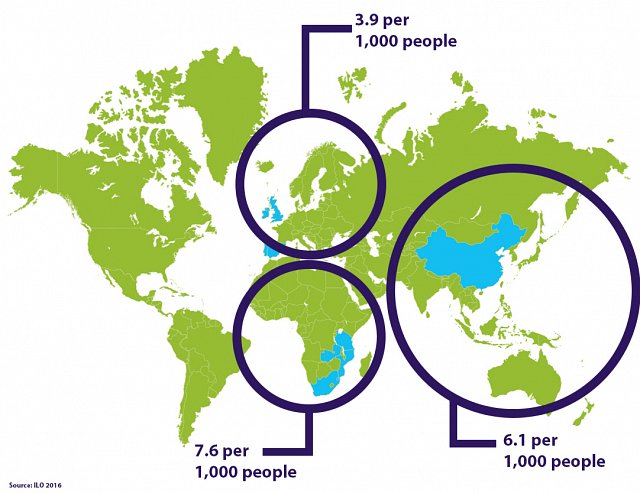Blog
19 September 2018
How we’re tackling modern slavery in the sugar industry

A blog by our CEO, Dr Mark Carr
The creation of the UK’s Modern Slavery Act three years ago was a historic moment, but for AB Sugar, our commitment to playing our part in ensuring zero tolerance towards modern slavery has remained steadfast. As an international sugar business working in agriculture in some of the least developed countries in the world, we face complex challenges related to human rights and modern slavery. As such we recognise the need to undertake bespoke approaches on the ground to address these challenges in each of our operating markets.
We are determined to go beyond minimum compliance, as set out in the Associated British Foods (ABF) Modern Slavery and Human Trafficking Statement 2017, to ensure our businesses remain constantly vigilant to this issue, both in our direct operations and our wider supply chain. We have made great strides on this to date, with many of our businesses undertaking their own mapping exercises to identify the risks to modern slavery in their operations and beyond.
And we know we have more to do.
As an agricultural business, we’re all too aware that over 75% of child labour globally occurs in agriculture, and per 1,000 people in Africa there is an estimate of 7.6 cases of modern slavery, in Asia an estimate of 6.1 and in Europe it’s 3.9.[1] These statistics act as a stark reminder that modern slavery can happen at any point in the supply chain and in any country in the world.

Challenging the status-quo
With over 25,000 growers worldwide, around 32,000 people working for us and a supply network spanning three continents, ensuring our people have a comprehensive awareness of the issue and all the human rights abuses which modern slavery encompasses is pivotal to tackling the challenges head on.
I believe modern slavery is best tackled locally, on the ground, and that this can only be achieved by equipping our people with the right awareness, knowledge and ability to identify instances where it may be taking place. To do this, we created our first modern slavery awareness animation targeted at explaining to our staff what modern slavery is, how it may arise across our supply chain, and what action to take if anyone witnesses a potential breach of our policy.
The animation puts modern slavery into a specific sugar context so our staff can better understand where instances of modern slavery could occur and makes them aware of the various steps they can take to voice any concerns, including through an independent confidential whistleblowing hotline. It is our aim that all existing and new staff in our businesses see this animation and we are also considering how we can produce something similar for our suppliers in the future.
Raising awareness is only the beginning though, as in the coming months we intend to publish our own modern slavery statement to complement ABF’s, which will set out the risks of modern slavery in each of our businesses and explain our plans to mitigate them, including exploring similar awareness initiatives for suppliers and potentially more formal training.
This activity will set out our own blueprint for addressing one of the world’s most pressing labour issues in addition to our continued partnerships with like-minded organisations to address the wider human rights agenda. We will continue to empower our people to speak up, in confidence, if they spot something taking place and be sure to address any arising issues head on.
[1] ILO (2016)
Notes to editors:
This ongoing work forms part of our social sustainability pillar to build thriving and healthy communities within our Global Mind, Local Champions approach.















